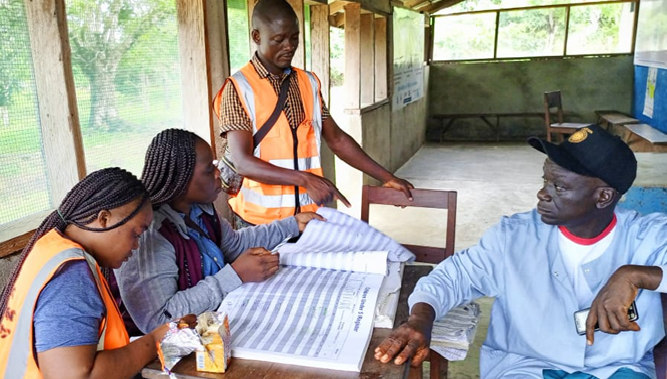
Executive Summary
Introduction
The government-to-government (G2G) Partnership for Improved Health
Outcomes (Health Partnership) Activity is a $55 million activity
between the United States Government through the United States
Agency for International Development—Liberia (USAID/Liberia) and
the Government of Liberia through the Ministry of Finance and
Development Planning (MFDP) and the Ministry of Health (MoH).
The implementation period of the Health Partnership Activity
is January 2022 to December 2026. Verification of outputs or
milestones by USAID/Liberia (either directly or through a
third party) is required for a fixed-amount reimbursement-type
agreement. USAID/Liberia requested DELTA to lead the verification of
outputs (milestones) contained in the G2G agreement on behalf of the
Mission. DELTA identified ADARA-RMC, a local firm, to implement the data
collection for the verification activity. The data verification
activity involved two rounds of data collection at the central Ministry
of Health (MoH), County Health Teams (CHTs), and G2G-supported health
facilities (HF) in eight counties - Bong, Lofa, Nimba, Grand Cape Mount,
Grand Gedeh, River Gee, Grand Bassa, and Margibi.
This report presents the findings for the first round (Round One) which
covered the period April to December 2022: April to June (Q2); July to
September (Q3); October to December (Q4).
METHODS
Through a health facility assessment method in the first round, the team
verified, cumulatively, data from 193 HFs distributed across three quarters
- 64 HFs for Q2, 64 HFs for quarter 3, and 65 HFs for quarter 4.
The selection of HFs across each of the eight counties was based
on simple random sampling techniques while ensuring district
representation and inclusion of secondary health facilities (SHFs).
Additionally, the team conducted a desk review of data/reports as well as
collected primary data at the counties and MoH. More specifically at
the selected HFs, the team conducted a review of records, and collected
data through observation and interviews. All tools for data collection
were those approved by USAID and to a large extent aligned with those of
the MoH. to a large extent aligned with those of the MoH.
Data was cleaned and, with guidance from USAID, analyzed to provide findings
on milestones of the Health Partnership Activity. The findings, below, are
presented by the category of milestones: service delivery outputs, service
delivery bonus milestones, administrative milestones, and quality of care.
The number of sampled HFs in each county per each quarter is the major
limitation of the Round One verification activity. Thus, the findings
reflect the results in the sampled HFs and cannot be generalized as
those for each county. Despite this limitation, the findings could be
used to inform health system improvements across the G2G counties.
Based on the findings, the following recommendations are made:
-
Comprehensive Review: The Ministry of Health should conduct
a comprehensive review of the data systems and processes
from the availability of ledgers, proper recording of data,
accurate reporting, storage of data collection tools, and
analysis and utilization of data.
-
Targeted Interventions to Data Quality Issues:
The findings highlight the need for targeted interventions in
counties with persistent data accuracy issues to ensure reliable
health service delivery. The Ministry of Health should design
targeted training and capacity-building interventions for
CHTs and facilities to enhance the effectiveness of data
recording and improve data accuracy across all milestones.
Additionally, targeted interventions should be made at the
county level on required financial management and procurement
activities and strengthen accountability measures for compliance.
-
Timely Data Verification: The persistent discrepancies
across multiple counties underscore the need for MoH to
conduct robust and timely data verification processes and
training to ensure more accurate and reliable reporting.
Addressing these issues is crucial for effective monitoring and
vaccination coverage among pregnant women. USAID should ensure
timely counter-verification or verification of milestones and
support the Ministry of Health in addressing system-level
gaps and ensuring timely accountability measures are implemented
by the MoH.
-
Ensure Financial Management Compliance: The MoH internal audit
office should ensure compliance with the financial management
checklist throughout FM processes
Read more about the USAID G2G Project here